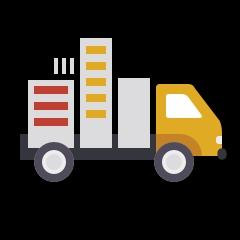The Strategic Advantage of Efficient Air and Sea Clearance and International Freight Forwarding
In the fast-paced, globalized world of modern commerce, efficiency in logistics can make or break a business. Companies today rely heavily on international trade to fuel growth and maintain a competitive edge. At the heart of successful global trade lies a pair of critical components: Air and Sea Clearance and International Freight Forwarding. These functions are vital in ensuring goods are delivered promptly, legally, and cost-effectively across borders.
Whether you are a startup exploring new markets or a multinational company optimizing supply chain logistics, understanding the nuances and benefits of Air and Sea Clearance and International Freight Forwarding is essential. Let’s delve deep into why these logistics services matter, the processes involved, and how they drive business success.
The Essence of Air and Sea Clearance
Air and Sea Clearance refers to the administrative, legal, and procedural steps necessary to import and export goods via air and sea routes. This includes customs documentation, inspections, tax and duty payments, and compliance with local and international laws. Clearance is required both at the departure point and the arrival destination.
Without proper Air and Sea Clearance, shipments can be delayed indefinitely, incur heavy fines, or be confiscated altogether. Businesses that regularly deal with international trade must prioritize effective clearance processes to avoid these costly consequences.

Key Components of Air and Sea Clearance
- Customs Documentation: Accurate documentation is non-negotiable. This includes commercial invoices, packing lists, bills of lading or air waybills, certificates of origin, and other regulatory documents.
- Tariff Classification: Goods must be classified under correct Harmonized System (HS) codes to determine applicable duties and taxes.
- Compliance: Each country has unique import/export regulations. Proper Air and Sea Clearance ensures compliance with both international and destination-specific laws.
- Duty and Tax Payment: Timely and accurate payment of customs duties and taxes is necessary to release goods for final delivery.
- Inspection Management: Certain products may be subject to inspection by customs or other governmental bodies. Efficient handling of these inspections is part of effective Air and Sea Clearance.
The complexity of these requirements has driven many businesses to seek expert help. This is where International Freight Forwarding plays a critical role.
What is International Freight Forwarding?
International Freight Forwarding refers to the coordination and shipment of goods from one place to another via air, sea, rail, or road. Freight forwarders act as intermediaries between shippers and transportation services, managing everything from storage to shipping, documentation, and even insurance.
While freight forwarders don’t move goods themselves, they provide an end-to-end service that ensures goods reach their destination efficiently, safely, and in compliance with all legal regulations.

Services Included in International Freight Forwarding
- Booking Cargo Space: Freight forwarders negotiate with carriers to secure space for goods on ships or planes.
- Routing and Scheduling: Choosing optimal routes and schedules minimizes transit time and costs.
- Customs Brokerage: Most reputable freight forwarders provide customs brokerage services, assisting with Air and Sea Clearance.
- Tracking and Updates: Real-time tracking and status updates keep shippers informed throughout the transportation process.
- Warehousing and Distribution: Some freight forwarders offer storage and last-mile delivery services.
- Risk Management: By handling insurance and claims, freight forwarders mitigate potential losses due to damage, theft, or delay.
The Interplay Between Air and Sea Clearance and International Freight Forwarding
Efficient International Freight Forwarding cannot exist without seamless Air and Sea Clearance. The two are intricately connected—successful forwarding depends heavily on whether the shipment clears customs without delays.
For example, if a shipment arrives at a port but lacks proper documentation or tariff classification, it may be held indefinitely. This disrupts the supply chain, potentially leading to financial penalties, lost sales, or damage to brand reputation.
By integrating Air and Sea Clearance into the broader logistics strategy, International Freight Forwarding companies can offer a holistic solution that streamlines the movement of goods and enhances customer satisfaction.
Benefits of Using a Professional International Freight Forwarding Partner
Working with an experienced International Freight Forwarding provider offers multiple advantages:
1. Expertise and Knowledge
Experienced freight forwarders understand the ever-changing landscape of global trade regulations. They are well-versed in the complexities of Air and Sea Clearance, ensuring compliance with international law and minimizing the risk of penalties.
2. Cost Efficiency
Due to their volume of business and established relationships with carriers, freight forwarders can secure better rates for shipping, warehousing, and customs services. These cost savings are passed on to clients.
3. Time Savings
Navigating customs regulations and logistical hurdles can be time-consuming. Outsourcing these tasks allows businesses to focus on core operations while experts handle the complexities of International Freight Forwarding and Air and Sea Clearance.
4. Reduced Risk
Freight forwarders help mitigate risks associated with delays, damage, or compliance issues by managing documentation, insurance, and communication with various stakeholders.
Challenges in Air and Sea Clearance and How to Overcome Them
1. Changing Regulations
Countries frequently update their import/export policies. Staying informed is critical to ensuring timely Air and Sea Clearance. Partnering with freight forwarders helps businesses stay ahead of regulatory changes.
2. Documentation Errors
One of the most common causes of customs delays is incomplete or incorrect paperwork. Investing in automated documentation systems or using freight forwarding services significantly reduces the likelihood of such errors.
3. Unforeseen Inspections
Random inspections can cause delays, especially if goods are not packed or labeled according to regulations. Professional guidance from freight forwarders ensures compliance and minimizes the chances of extended inspections.
Technology’s Role in Streamlining Logistics
Technological advancements are transforming how businesses handle Air and Sea Clearance and International Freight Forwarding. Digital platforms now offer features like automated customs documentation, AI-powered route optimization, real-time shipment tracking, and predictive analytics.
These tools enable companies to:
- Monitor shipments in real time.
- Automatically generate compliant shipping documents.
- Analyze delivery performance.
- Forecast and mitigate potential disruptions.
Incorporating these technologies into your logistics strategy enhances operational efficiency and reduces manual workload.
Industry Trends Shaping the Future
1. Green Logistics
Environmental sustainability is now a priority in the logistics sector. Freight forwarders are investing in carbon offsetting programs, fuel-efficient transportation, and sustainable packaging to align with eco-conscious business practices.
2. Integrated Supply Chains
Businesses are moving toward fully integrated supply chains where International Freight Forwarding and Air and Sea Clearance are part of a unified system. This enhances visibility, improves communication, and enables data-driven decision-making.
3. E-commerce Growth
The surge in global e-commerce has increased demand for fast and reliable cross-border shipping. Efficient Air and Sea Clearance and smart International Freight Forwarding are critical to meeting customer expectations for quick deliveries.
Choosing the Right Logistics Partner
When selecting a logistics provider, businesses must consider:
- Experience and industry reputation.
- Global network and partnerships.
- Digital capabilities.
- Transparency and communication.
- Customizable service offerings.
A logistics partner like basstop exemplifies excellence in delivering reliable, scalable solutions tailored to your business needs. Whether managing high-volume international shipments or navigating complex customs regulations, companies like basstop play a pivotal role in your success.
Final Thoughts
In a global economy defined by speed, scale, and complexity, companies must prioritize logistics efficiency. Air and Sea Clearance and International Freight Forwarding are more than just back-office functions—they are strategic assets that drive growth, improve customer satisfaction, and protect against risk.
By understanding the processes, leveraging expert support, and investing in the right technologies, businesses can create resilient, efficient, and cost-effective supply chains. The future of trade is built on fast-moving goods and seamless borders—and those who master Air and Sea Clearance and International Freight Forwarding will lead the way.


Leave a Reply
Want to join the discussion?Feel free to contribute!